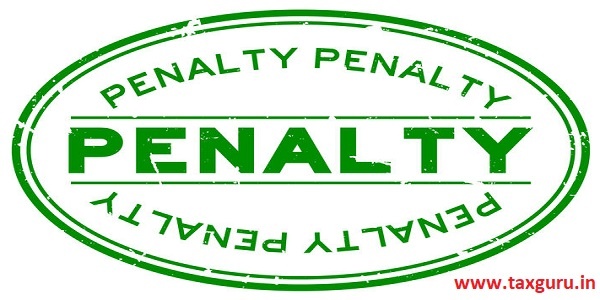With a view to counteracting evasion of tax, section 269SS provides modes of taking / accepting certain types of loan / deposit / specified sum. In case the person fails to comply with the said provisions of section 269SS, then he would be liable to pay the penalty as prescribed under section 271D of the Income Tax Act, 1961.
The present article covers the applicability of provisions of section 271D; authority imposing the penalty under section 271D; reasonable cause for the failure; and the amount of penalty payable under section 271D.
Page Contents
Applicability of provisions of section 271D of Income Tax Act
The penalty provision of section 271D applies in case the person contravenes provisions of section 269SS of the Income Tax Act.
Henceforth for understanding the penalty leviable under section 271D, it is important to understand the provisions of section 269SS, which are explained here under –
- Under specified circumstances, section 269SS restricts the person from taking or accepting loan; deposit or any specified sum from any other person other than the following mode –
- An account payee cheque; or
- An account payee bank draft; or
- Electronic clearing system through a bank account; or
- Any other electronic mode, as specified.
- The specified circumstances, as per provisions of section 269SS are summarized hereunder –
- The amount of loan / deposit / specified sum is INR 20,000 or more.
- The sum total of loan / deposit / specified sum is INR 20,000 or more.
- In case the person has already taken a loan / deposit / specified sum from the depositor, and the amount of loan / deposit / specified sum is not paid back, and the unpaid amount is INR 20,000 or more.
- Provisions of section 269SS shall not apply when loan / deposit / specified sum is taken or accepted from, or loan / deposit / specified sum is taken or accepted by any of the following entities –
- The Government; or
- Any banking company or a post office savings bank or a co-operative bank; or
- Any corporation established by Central or State or a Provincial Act; or
- Any Government Company; or
- Any institution; association / body / class of institutions; association or bodies as notified in the official Gazette.
- Both giver and taker are having only an agricultural income (both should not have any income chargeable to tax).
Authority imposing penalty under section 271D
As per section 271D (2), the penalty for contravening the provisions of section 269SS can be imposed only by the Joint Commissioner. In nut-shell, no other authority, other than Joint Commissioner, can impose a penalty under section 271D.
Reasonable cause for failure for penalty under section 271D
The penalty under section 271D is leviable in case the person contravenes provisions of section 269SS. However, in case of failure, if the person proves the reasonable cause for the said failure, then in such case, no penalty can be imposed (as per provisions of section 273B of the Income Tax Act).
Based on the judicial rulings, some of the reasonable cause are listed hereunder –
- The amount paid by the partners to the firm or by the firm to the partners.
- When the deposit amount is already accessed as income.
- Genuine transactions made at the time of emergency.
Amount of penalty leviable under section 271D
In case the person fails to comply with the provisions of section 269SS, then, the defaulter would be liable to pay an amount equal to the amount of loan / deposit / specified sum so taken / accepted.
Read Also:-






